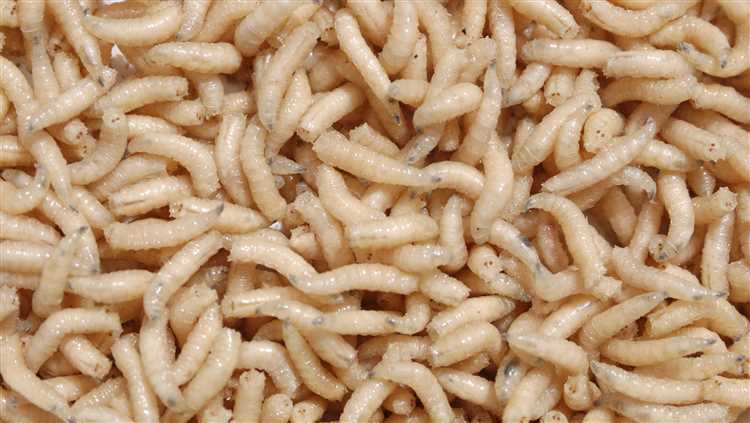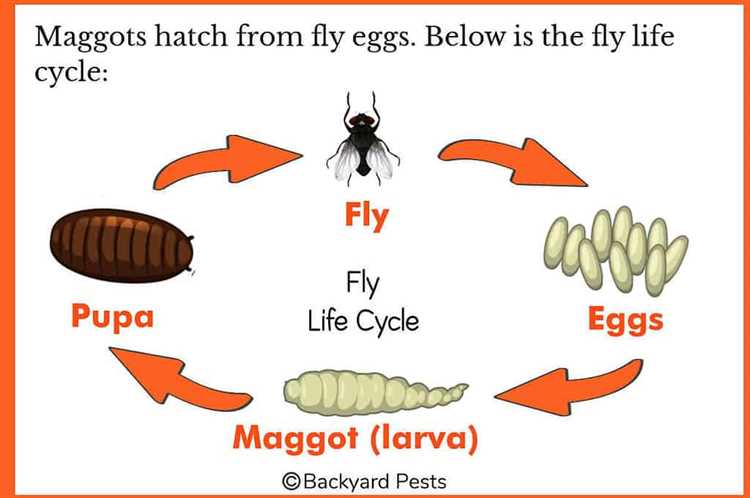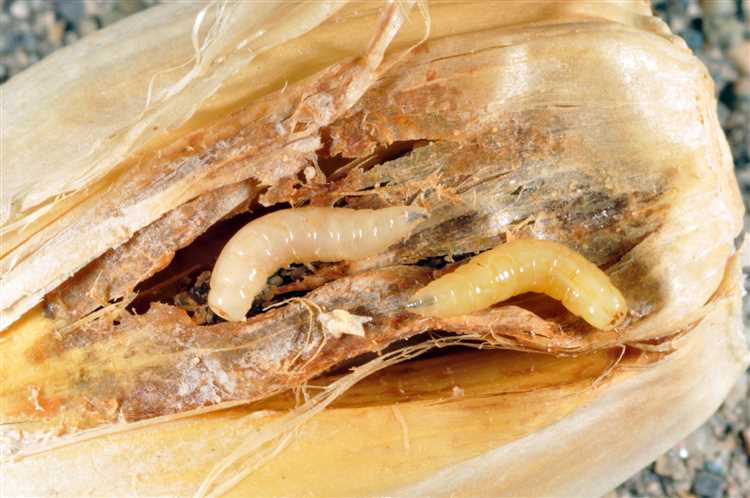Maggots are the larval stage of various flies, such as the common housefly. These small, legless creatures are often associated with unsanitary conditions and decomposition. But what exactly attracts maggots?
One of the main factors that attract maggots is the presence of decaying organic matter. This can include anything from rotting food and animal carcasses to feces and even wounds on living organisms. Maggots are highly efficient at breaking down and consuming these decomposing substances, which provides them with a plentiful food source.
Another factor that attracts maggots is warmth. Maggots are cold-blooded creatures, meaning their body temperature is influenced by the surrounding environment. They thrive in environments with temperatures between 75°F and 95°F (24°C and 35°C). This is why maggots are often found in warm, moist areas such as compost piles, garbage bins, and animal waste.
The presence of moisture is also a key attractant for maggots. Maggots require a moist environment to keep their bodies hydrated and prevent dehydration. Moisture helps facilitate their movement and aids in the breakdown of organic matter. Areas with high humidity or dampness, such as rotting vegetation or damp soil, are ideal breeding grounds for maggots.
Lastly, certain odors can attract maggots. Many types of flies have a strong sense of smell and are attracted to specific smells associated with decaying organic matter. These odors can be produced by the chemical compounds released during decomposition. By following these scent trails, flies can locate and lay their eggs on suitable food sources, which then hatch into maggots.
In conclusion, maggots are attracted to decaying organic matter, warmth, moisture, and certain odors associated with decomposition. Understanding these factors can help in preventing and controlling maggot infestations, especially in areas where hygiene and waste management are essential.
- What are maggots attracted to?
- Decaying organic matter
- Moisture and humidity
- Decay and putrefaction
- Conclusion
- Warmth and humidity
- Foul odor and gases
- Organic matter
- Moisture and moisture-rich environments
- Question-answer:,
- What are some factors that attract maggots?
- Why are maggots attracted to decaying organic matter?
- Are maggots attracted to all types of decaying organic matter?
- What role does moisture play in attracting maggots?
- Why are maggots attracted to strong odors?
- What are some factors that attract maggots?
What are maggots attracted to?
Maggots, the larvae of flies, are attracted to a variety of factors that provide them with favorable conditions for growth and development. Understanding what attracts maggots can help in preventing infestations and maintaining hygiene.
Decaying organic matter

Maggots are strongly attracted to decaying organic matter such as rotting food, animal carcasses, garbage, or compost piles. This is because the decomposition process creates a warm, moist environment that is perfect for maggot development. The smell of decomposing matter, along with the release of gases like ammonia and hydrogen sulfide, acts as a strong attractant for flies to lay their eggs, which eventually hatch into maggots.
Moisture and humidity

Another factor that attracts maggots is moisture and humidity. Maggots thrive in moist environments, as it provides them with the necessary moisture to survive. Therefore, areas with high humidity levels or stagnant water are more likely to attract flies and, subsequently, maggots. It is important to keep living spaces, kitchens, and food storage areas dry and clean to prevent maggot infestations.
In conclusion, maggots are attracted to decaying organic matter and environments with high moisture and humidity levels. Keeping these factors in check and maintaining good hygiene practices can help prevent maggots from infesting your surroundings.
Decay and putrefaction
Decay and putrefaction are important factors that attract maggots. Maggots are larvae of flies, and they are frequently found in decaying organic matter.
When organic matter starts to decompose, it emits various volatile compounds that are highly attractive to flies. These compounds include ammonia, hydrogen sulfide, and various organic acids. Flies have specialized chemoreceptors that allow them to detect these chemical signals from a distance.
Once flies detect the odor of decaying organic matter, they lay their eggs on or near the source. The eggs then hatch into maggots, which feed on the decomposing material. Maggots have an incredible ability to consume large amounts of decaying matter, which helps speed up the decomposition process.
Putrefaction, which is the breakdown of organic matter by bacteria and other microorganisms, also attracts maggots. As bacteria break down the organic matter, they release additional compounds that are attractive to flies and their larvae. The increased microbial activity also generates heat, which further stimulates the growth and development of maggots.
In addition to temperature and chemical signals, maggots are also attracted to areas with high moisture levels. Moisture helps create a suitable environment for the growth and development of maggots. It provides the necessary hydration for their bodies and helps soften the decomposing material, making it easier for them to feed.
Conclusion
Decay and putrefaction play a crucial role in attracting maggots to a particular area. The release of volatile compounds, increased microbial activity, and the presence of moisture all contribute to the attractiveness of a decaying organic material to flies and their larvae. Understanding these factors can be valuable in controlling and managing maggot infestations.
Warmth and humidity

Maggots are highly attracted to warmth and humidity. Flies, the adult form of maggots, thrive in warm and moist environments. The ideal temperature for fly reproduction is between 80 and 90 degrees Fahrenheit (26 to 32 degrees Celsius). When the temperature rises, flies become more active and lay their eggs, which then hatch into maggots.
The humidity level also plays a crucial role in attracting maggots. Flies prefer environments with high humidity, as it provides the necessary moisture for their eggs to develop and hatch successfully. Humidity levels above 70% are particularly attractive to flies and increase their breeding rate.
To prevent maggots from infesting an area, it is essential to control the temperature and humidity. Keeping the environment cool and dry can help deter flies from laying their eggs. Regularly cleaning and maintaining proper ventilation in areas prone to fly infestation can also help reduce warmth and humidity, making it less attractive for flies to reproduce.
It is important to note that warmth and humidity alone may not be sufficient to attract maggots. Other factors, such as the presence of decaying organic matter or feces, play a significant role in attracting flies and subsequently maggots.
Foul odor and gases
Maggots are attracted to foul odors and gases, which are often emitted by decomposing organic matter. The odor produced by decaying animals, food, or waste can be especially enticing to maggots. These odors are a result of chemical reactions that occur during the decomposition process.
When organic matter decomposes, it releases various gases such as ammonia, hydrogen sulfide, and methane. These gases are byproducts of bacterial activity and contribute to the foul-smelling odor. The strong odor acts as a signal to maggots that a potential food source is nearby, prompting them to move towards the source.
| Factors that attract maggots | |
|---|---|
| Foul odor and gases | ✔ |
| Moisture | |
| Warm temperatures | |
| Darkness |
It’s important to note that maggots do not possess a sense of smell like humans do. Instead, they have sensory structures called chemoreceptors, which allow them to detect certain chemicals present in the odor. These chemoreceptors help them navigate towards a food source.
Preventing the release of foul odors and gases can help minimize the attraction of maggots. Proper disposal of organic waste, regular cleaning, and maintaining good hygiene can reduce the chances of maggots infesting an area.
Organic matter
Maggots are attracted to organic matter, particularly decaying organic matter. This includes substances such as rotting food, fruits, vegetables, meat, and even dead animals. The odor emitted by decomposing organic matter is a strong attractant for maggots.
In addition to the odor, maggots are also attracted to the moisture content of organic matter. Moist environments, such as trash cans, compost piles, and decaying plant matter, provide ideal conditions for maggots to thrive and reproduce.
It is important to note that maggots play an important role in the decomposition process of organic matter. They help break down and recycle nutrients, speeding up the natural recycling process of organic materials.
To prevent maggots from being attracted to organic matter, it is essential to properly dispose of food waste and maintain good hygiene practices. This includes covering trash cans, cleaning spills and food debris, and regularly emptying and cleaning compost bins.
- Dispose of food waste in sealed containers to reduce odors and prevent access to maggots.
- Clean spills and crumbs immediately to avoid attracting maggots and other pests.
- Regularly empty and clean compost bins to prevent the buildup of decaying organic matter.
- Keep garbage cans clean and tightly sealed to minimize the chances of maggots infestation.
- Properly store and handle food to prevent it from spoiling and attracting maggots.
By practicing good sanitation and waste management practices, it is possible to minimize the chances of maggots being attracted to organic matter and infesting homes and outdoor areas.
Moisture and moisture-rich environments
Maggots are highly attracted to moisture and thrive in moisture-rich environments. The presence of moisture provides maggots with the necessary conditions for growth and reproduction.
Various factors contribute to the presence of moisture in an environment, making it attractive to maggots:
Decaying organic matter: Maggots are particularly attracted to decaying organic matter, such as rotting food, animal carcasses, or compost. During the decomposition process, the organic matter releases moisture, creating an ideal environment for maggots.
Damp or wet conditions: Maggots are commonly found in areas with damp or wet conditions, such as moist soil, damp carpets, or wet garbage containers. These environments provide maggots with ample moisture and are therefore highly attractive to them.
Liquid and food spills: Any spills of liquid or food can create a moisture-rich environment, attracting maggots. Whether it’s a spilled drink, leftover food, or food packaging that has been contaminated, these sources of moisture can quickly become breeding grounds for maggots.
Inadequate drainage: Poor drainage systems or stagnant water can lead to accumulation of moisture, making an area more appealing to maggots. Areas with standing water or areas where water pools can become breeding grounds for maggots.
Leaking pipes or plumbing: Leaking water pipes or plumbing fixtures can create areas of excess moisture, providing an attractive environment for maggots. The constant presence of moisture from these leaks can lead to the colonization of maggots.
High humidity: Maggots are also attracted to environments with high humidity. Humidity creates moisture in the air, which can contribute to the overall moisture content of an environment. Areas with high humidity, such as basements or bathrooms, can become attractive habitats for maggots.
Summary: Maggots are attracted to moisture and prefer moisture-rich environments. Factors such as decaying organic matter, damp conditions, liquid and food spills, inadequate drainage, leaking pipes, and high humidity all contribute to the attractiveness of an environment to maggots.
Question-answer:,
What are some factors that attract maggots?
Maggots are attracted to various factors such as decaying organic matter, moisture, warmth, and strong odors.
Why are maggots attracted to decaying organic matter?
Maggots feed on decaying organic matter because it provides them with a source of nutrients. The bacteria and fungi present in decaying matter break it down, making it easier for the maggots to consume.
Are maggots attracted to all types of decaying organic matter?
Maggots are attracted to a wide range of decaying organic matter, including meat, fruits, vegetables, and even animal carcasses. They are particularly attracted to moist, decomposing material.
What role does moisture play in attracting maggots?
Moisture is a crucial factor in attracting maggots. It helps create an environment that is conducive to the growth of bacteria and fungi, which maggots feed on. Additionally, moisture allows maggots to move more easily through the decaying matter.
Why are maggots attracted to strong odors?
Maggots have a highly developed sense of smell and are attracted to strong odors. Strong odors usually indicate the presence of decaying matter, which provides them with a source of food. They are especially attracted to the smell of decomposing meat.
What are some factors that attract maggots?
Maggots are attracted to factors such as decaying organic matter, warm temperatures, and moisture.